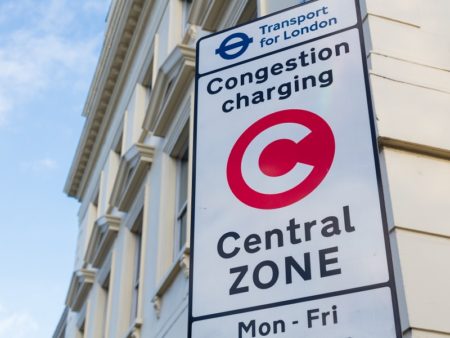TfL to reinstate Congestion Charge and ULEZ under government bail-out
Transport for London has come under fire for plans to reinstate road user charges; part of a number of conditions to secure a £1.6bn package to protect services.

The plan is to increase the Congestion Charge from £11.50 to £15 and increase the hours of operation from 22 June
Although both the Congestion Charge and ULEZ were suspended on 23 March to help key workers, the Government’s funding and financing package will see them both come back into force from Monday 18 May.
While the Congestion Charge will initially continue at the previous price of £11.50 a day, the plan is increase this to £15 – a 30% rise – from 22 June, while the hours of operation will be extended to 7am-10pm, seven days a week, compared to the current scheme of 7am-6pm, Monday to Friday.
Other measures have seen Mayor of London Sadiq Khan also agree to increase fares next year on all modes of transport by RPI plus 1%, in line with the proposals in TfL’s own business plan.
The deal also sets out that the Government will carry out an immediate and broad-ranging review of TfL’s future financial position and structure, including the potential for efficiencies.
The measure come after the epidemic had seen passenger numbers fall to levels not seen for 100 years, meaning fare and other TfL revenues had fallen by 90%.
Khan had warned yesterday that without a deal, TfL would have had to issue a Section 114 notice – the equivalent of a public company going bust – and implement strict spending restrictions.
But the new measures have come under fire for their impact to both businesses and drivers.
The FTA has warned that the reintroduction of road charging schemes will hamper economic recovery. Natalie Chapman, the FTA’s head of urban policy, said: “The suspension of road charging schemes was extremely welcome in helping logistics operators focus on dealing with the Covid-19 crisis and protected many of their livelihoods when the shutdown posed a threat to their future solvency as there was no work available for them to do. To reintroduce road charging without any notice smacks of opportunism on the part of TfL and threatens the green shoots of recovery across London’s economy, while also jeopardising many logistics businesses as they look to work their way out of the crisis and rebalance their books.”
Meanwhile Alex Buttle, director of car selling comparison website Motorway.co.uk, warned that the 30% congestion charge hike would not only be a “bitter pill to swallow for London car owners who travel into the city” but also said it would cause confusion when the overall government message is for people returning to work to try and avoid public transport.
“This hike is likely to encourage more people to use the tube and trains next week,” he stressed.
“There will inevitably be a financial cost for all of us after a prolonged lockdown, but hitting commuters in the pocket so early after restrictions are eased seems harsh, especially when the economy needs people to return to work. It also hasn’t been made clear if this price hike is temporary or permanent.”
Edmund King, AA president, also slammed the price rise, saying: “Even though TfL were between a rock and a hard place in terms of finances, these hikes are taking the charges from a ‘congestion’ charge to a ‘taxation’ charge. Traffic at weekends and in the evenings is at its lowest ebb and hence this is no longer a congestion charge.
“What are the alternatives for longer journeys? Public transport can’t cope. More walking and cycling whilst welcome, isn’t viable for all people and all journeys. There are just 10,000 park and ride (Tube) spaces in London so emergency measures should be brought in to set up park/cycle facilities at the O2, Stratford and other locations.”
However, he added that saving grace may be a rush for more Londoners to buy electric vehicles in order to avoid the charges; a point also made by Motorway.co.uk’s Alex Buttle.
“If that is the legacy of higher prices, then London will benefit in the long run from less polluted air as we see a faster switch over to cleaner motoring,” added Buttle.

















